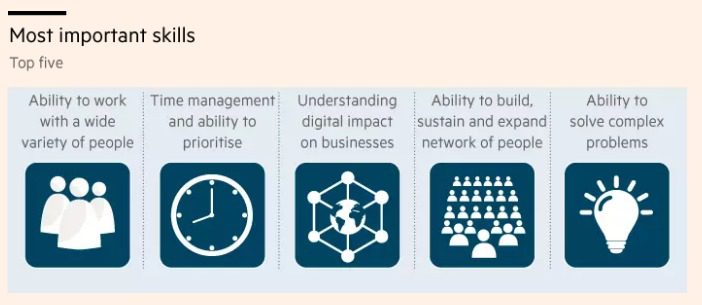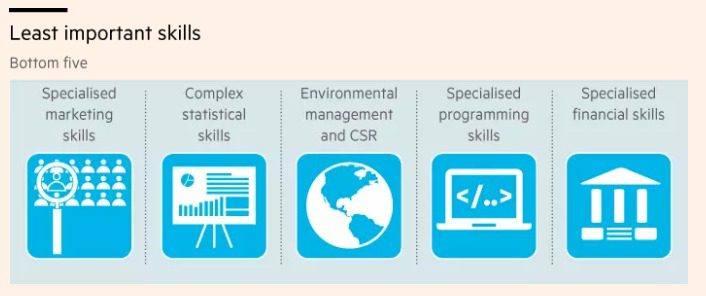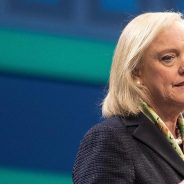Search results for mba recruiters:
MBA Alumni Spotlight: HP CEO Meg Whitman
Meg Whitman has been slaying the business world one corporation at a time. She’s the true definition of a businesswoman who doesn’t play when it comes to her money—and success. She’s currently reigning over Hewlett-Packard Enterprise, but she’s been building her empire for more than 20 years.
And she’s not done.
The CEO of Hewlett-Packard Enterprise set her expectations high from the start. Raised in the wealthy suburbs of Oyster Bay, New York, on Long Island, Whitman has ties to Boston’s elite, reports Business Insider. She eventually left the nest to study at Princeton University. While she initially had interests in medicine, Whitman changed her major to economics, eventually going on to receive her MBA at Harvard Business School.
Her first major gig landed her in Cincinnati in the late ’70s when she joined P&G, a consumer goods corporation. That’s where her feminist leanings truly began to reveal themselves. Whitman learned that the company refused to give female employees company credit cards because it didn’t find it safe for women to travel alone, as Business Insider describes. The lady boss got the company to change that policy. She continues to influence the corporation through its board, on which she sits.
READ MORE: “Top MBA Recruiters: Hewlett-Packard”
From there, it was a wrap. Whitman went on to work for major toy company Hasbro, where she was in charge of the famous Mr. Potato Head, as well as bringing Teletubbies to U.S television. Where Whitman left one of her greatest marks, however, was online retailer eBay. In 10 years, she helped increase the company’s revenue from $4 million to $8 billion, and its employee numbers grew from 30 to 15,000, creating one of the most massive and quick corporate turnarounds in recent memory.
Her hard work there paid off. She moved on to become CEO of Hewlett-Packard in 2011, where she’s transformed the company and even separated it into two entities: Hewlett-Packard Enterprise and HP Inc. That’s where she plans to stay—even amid offers from places like like hyper-valued ride sharing startup Uber. The company was seeking a new CEO, preferably a woman, but she wasn’t interested.
Her time at Hewlett-Packard hasn’t been all sunshine though. She took her role as CEO during turbulent times and was forced to do massive layoffs to salvage the company. The layoffs began in 2012 and continued well into 2015. But making tough decisions is part of what makes Whitman a great leader—at least, in the business world.
Whitman ran for governor of California as a Republican in 2010. Though current politics might show that some people value a leader with a business background Whitman ultimately lost to current Governor Jerry Brown.
Politics may not be her game, but her place in business is abundantly secure. In 2015, she was named 7th overall on Fortune‘s list of highest paid women and 7th on its list of most powerful women. She kept the latter title last year too—and moved up the list when it came to her income. Whitman’s success highlights how far an MBA can take someone, especially women, who aren’t always as welcome in the business world as some of their male colleagues.
What Employers Do and Don’t Look for In An MBA Graduate
Earning an MBA can often be a huge boost for graduates entering the job market, from opportunities for upper-level management roles to increased salaries.
But securing that job post-graduation can still be an uphill climb. Even with an MBA, students often find themselves struggling to understand how they fit within a changing job market. As the market continues to shift, understanding exactly what employers are looking for in their MBA applicants—and what they aren’t looking for—can be crucial for graduates as they search for and apply for their perfect job.
Thankfully, a recent survey from the Financial Times looked at the job market from the perspective of employers: what they are in need of in terms of MBA job seekers, and how MBA applicants can be more realistic regarding for the roles for which their new degree will qualify them. Unfortunately for many MBAs, the survey results may come as a surprise when they reflect on what skills they hoped their degree would offer in the first place. Yet, a critical understanding of what employers are and aren’t looking for can help job seekers re-frame the way they understand themselves and their prospective careers.
What Employers Want
The survey looked into the most important skills that employers look for in new MBA talent. Perhaps surprisingly, the five most important skills determined by the survey were actually not core MBA subjects. “Soft skills,” such as the ability to prioritize (desired by 72 percent of employers), the ability to work with a variety of people (76 percent of employers), and the ability for employees to effectively manage their time were the most desired and difficult to find, according to the survey.
The most difficult skills to recruit—the skills companies are sorely in need of—were most commonly named as the ability to use social media for the business’ needs, financial forecasting, big data analysis, brand storytelling skills, and the ability to train others.

The five most important skills, according to the Financial Times survey.
What Employers Don’t Want
The least important skills for an MBA, according to the survey, were those most often thought of as “hard skills,” such as specialized skills in marketing, finance, programming, or complex statistical skills. Similar skills were mentioned as the least difficult skills to recruit—the ability to solve complex problems and specialized marketing skills are often seen as common fare among MBA graduates and therefore a candidate with such skills won’t necessarily stick out.
Many surveyed employers said that past experience with MBA-holding employees had left them disappointed, with the degree-holder having difficulty turning concepts into practice. Many employers said that, while an MBA degree may be a nice bonus for a job candidate, the overall hiring decision is more based on the individual’s industry qualifications, rather than their degree.

These skills may be less necessary than MBA grads anticipate.
What Do You Need To Do?
So far, the results of the Financial Times survey may be disappointing for MBAs who have worked hard for their business education. No need to get concerned just yet, however. The employer response may have less to do with the idea that the skills of an MBA grad aren’t necessary in a company and more to do with a perception gap; the belief that business schools will not teach students the skills they need, and therefore that they do not need MBAs at their company.
Most of the work in convincing a skeptical employer your degree is worthwhile is simply convincing them that the skills learned as part of your degree are the same ones they desire. Many business schools are attempting to change the way MBAs are perceived and the type of skills that are associated with graduates. Julie Morton, Associate Dean of Careers Services and Corporate Relations at Chicago’s Booth School of Business, has already set half of her team to the work of promoting the value of MBA-holders in the workforce. Overall, much of the work will fall on business schools to market their graduates as holding the skills most desired by recruiters.
On a more individual level, however, the survey results also indicate that MBA grads can be more judicious in the roles that they apply to and the way they market themselves to potential employers. By focusing on the skills desired most—and the hardest to recruit—and ensuring that employers know these are the exact skills an MBA education offers, both employer and employee can benefit.
You can read the rest of the Financial Times survey here.
Berkeley Haas Opens Fall 2017 With Its Largest Full-Time MBA Class Ever and New Building
Like many top business schools this time of year, the Haas School of Business at the University of California at Berkeley is welcoming its incoming class of MBA students—but at Haas it’s a bigger group than ever before moving into brand-new digs that promise to be among the greenest in the nation.
There are 284 students in the entering class—32 more than last year—which brings what has long been the smallest leading business school more in line with some of its peers. Plans for next year include additional expansion, to a class size of 300. The grand opening of a new academic building—in progress for the past decade—made increasing the class size possible.
“The intimacy of the class is really an important part of what Haas is about,” Dean Richard Lyons acknowledged in a June interview with Clear Admit. But at just 250 students, where the school has hovered for many years, it has been a gross outlier—a mere third the size of Wharton and not even a third the size of Harvard. “Part of the reputation of the school is a function of its scale, and there are times where you are just not at the right reputational scale—you’re too small,” Lyons continued. “It’s a super intimate experience—there’s no question about that—but target companies want to go to a place where there are enough people graduating that they can send a team of recruiters, for example. If you are too small you are below the threshold.”
“We Don’t Want to Lose the Smallness That Makes Us Unique”
Precisely because the intimacy and close-knit nature of Haas is such an integral part of its culture, the administration, including the admissions team, has approached the process of increasing the class size carefully and thoughtfully. “I think people would be surprised by the amount of care that has been taken to consider potential ramifications,” Peter Johnson, assistant dean for the full-time MBA program and admissions, tells Clear Admit, adding that his team considered necessary adjustments of everything from budgets to graduate student instructors, program office staff to career coaches. “We have been very intentional about it because we don’t want to lose the level of smallness that makes us unique. A lot of our students were very concerned that it not change the experience for future students.”
Not only is the incoming class larger than any before it, it is also one of the strongest academically, Johnson says. Average GMAT scores and GPAs have risen over each of the past three years. The average GMAT score this year was 725—a jump from last year’s 717—and the average GPA climbed, too, from 3.64 to 3.71. Application volume also increased this past year, which meant that though the school admitted more students overall to increase class size, the acceptance rate remained constant at 12 percent. HBS, by comparison, generally accepts approximately 11 percent of its applicants.
The incoming class includes 40 percent women, up slightly over last year though still off from the record 43 percent that made up the Class of 2016. International students drawn from 42 different countries make up 39 percent of the class, up from 38 percent last year. Haas leads HBS, Wharton, and Kellogg in this metric, whose incoming classes are all around 35 percent international. Despite concerns that talk of potential immigration and visa reform under the current administration could have a chilling effect on international application volume, applicants from abroad applied in equal numbers this year as last, Johnson notes. U.S. minority students comprise 29 percent of the class, down from 32 percent last year.
In terms of what they did before coming to Haas, members of the Class of 2019 are an incredibly interesting bunch. Among them are a business development manager from Intel who led development of Google’s self-driving cars, an investment banker who ran from San Francisco to New York City over the summer to raise money and awareness of ALS in honor of his grandmother, a Bain consultant who earned four culinary diplomas in her spare time, a student from Nepal who helped senior political leaders and ex-ministers from five major parties negotiate a new constitution, and the founder and CEO of an Indian irrigation company that saves 4 billion liters of water annually while enabling smallholding farmers to produce 10,000 additional tons of food per year.
A quarter of the incoming students worked in consulting prior to Haas, and another 20 percent worked in finance. In terms of undergraduate degrees, 42 percent studied business or economics, 36 percent hold STEM degrees, and 8 percent graduated with degrees in the humanities.
“Top students from around the world with diverse backgrounds and amazing accomplishments continue to choose us for our distinctive culture,” Morgan Bernstein, executive director of full-time MBA admissions, said as part of an article on the Haas website. “No one else has the culture and community that we do.”
Can Chou Hall be the Greenest Academic Building in the U.S.?
The Haas Class of 2019 is the first to inhabit the newly opened Connie & Kevin Chou Hall, an 80,000-square-foot facility that boasts state-of-the-art classroom technology, flexible learning spaces, and features such as efficient heating, cooling, and lighting systems. These, in addition to rainwater cisterns and 24,300 square feet of exterior windows, helped it earn both LEED Platinum certification and WELL certification (an additional accolade applied to buildings that promote the health and well-being of their users).

Kevin Chou and Dr. Connie Che appearing at the Berkeley Haas School of Business last March, after announcing their record-breaking school donation (Noah Berger/2017)
The building bears the name of Kevin Chou, BS ’02, founding CEO of mobile gaming company Kabam, and his wife, Dr. Connie Chen, in recognition of their $25 million donation, the largest to date from an under-40 alum. The remaining funds for the $60 million building also came entirely from alumni and friends of the school.
In addition to LEED Platinum and WELL certification, Chou Hall has been designed to divert 90 percent of waste—including through the mandatory use of reusable mugs and water bottles that can be replenished at filling stations and compost and recycling bins on every floor—which will allow it to achieve zero waste certification by summer 2018. This would make it the first business school in the country to do so.

Early-stage concept art for the Connie & Kevin Chou Hall.
There are no places to dispose of other types of trash—encouraging those who use the building to adopt a “’pack-it-in, pack-it-out’ mentality,” according to Courtney Chandler, senior assistant dean and chief strategy and operations officer. “It might take a little getting used to, but we don’t think it will be hard for the Haas community—we’re all about questioning the status quo and redefining business-as-usual,” Chandler said in a story on the Haas website, referring to two of the school’s defining principles.
The building includes eight tiered classrooms and four flexible classrooms, totaling 858 new classroom seats, as well as 28 student and meeting rooms. This provided the much-needed additional space Haas required to expand its class size. A sixth-floor event space will open next month, and a café offering sustainable, locally sourced food—what else—is slated to begin serving students in early 2018.
This article has been edited and republished with permissions from Clear Admit.
San Francisco’s Top 3 Economics MBA Programs
When it comes to learning about economics, what better place than Silicon Valley?
San Francisco holds a number of schools that offer an MBA with a focus on economics. The Bay Area is not just a place of lax tech bros though. It’s a place booming with culture and treasures like the Golden Gate Bridge and the Pacific Coast Highway. The beach isn’t too far, either.
But if you are looking for a place to build a resume, San Francisco is it: It ranks among the nation’s best performing cities. San Francisco is also second among cities in the U.S. for GDP growth associated with tech firms.
While many schools in the area hold prestigious MBA programs, here are the top three for where to obtain an economics MBA.
Haas School of Business – UC Berkeley
The Hass School of Business at UC Berkeley has been around for nearly 30 years, since 1989. The Berkeley name itself holds a sense of prestige, but the Haas School even more so. It’s the oldest business school at a public institution. That’s something.
As for its MBA programs, the Haas School offers a full-time, Executive, and a part-time MBA, for which students can take classes in the evening or on weekends. The full-time MBA takes two years and includes a variety of focus areas students can do via electives. One area of focus is economic analysis and policy.
This focus gives candidates that economic edge needed to make it in the field. This focus starts from a student’s first year though the electives tend to become more dominant in the second year. The courses make up 60 percent of the curriculum. Some of these electives use a macroeconomic lens to look at the global economy. Others look at the housing and urban economy from the viewpoint of investors and real estate developers.
Recruiters have come to Haas from healthcare, internet, and solar companies. The program takes just 275 students a year. Those interested in the Haas School of Business must apply by Sept. 21.
Stanford University Graduate School of Business
The Stanford University Graduate School of Business came about after former U.S. President Herbert Hoover, a Stanford alum, helped created the business school in 1925. About 800 students are enrolled in the program at a given time. Sometimes, the program could hold half that size. The Class of 2018 enrollment featured more than 417 students.
The noted university offers a single, full-time MBA program. The business school ensures its curriculum is flexible to fit every student’s needs. By the end of their first quarter, students develop a personalized plan for their foundational courses. That way, they get the basics down before moving onto establish their focus with their experience and goals in mind.
For those interested in economics, Stanford offers two types of expertise: political economics and managerial economics. Here, students can learn about financial crises, contemporary economic policy, managing global political risk, and many more topics.
F.W. Olin Graduate School of Business – Babson College San Francisco
The F.W. Olin Graduate School of Business at Babson College’s San Francisco campus opened not too long ago, in 2011. It offers a unique blended learning program. Not all students can manage the time to come into a classroom. This program is flexible and blends online classes with in-person classes every seven weeks on Fridays and Saturdays.
Core classes get into the nitty gritty all business students need: financial reporting, managing talent, strategy, and others. But students also get the opportunity to take a series of Signature Learning Experiences that take students outside the classroom and into a hands-on learning environment.
Course topics vary from a myriad of things—and economics is among them. The core courses include one on managerial economics and another on how to apply data to economics. The school also gives economics classes about game theory, trade, globalization, and health economics.
Getting Paid: The Highest MBA Salaries in Atlanta
Looks like the secret’s out and ATliens’ extraterrestrial days might be numbered.
London Business School Launches More Flexible MBA
An MBA program needs to continuously evolve to stay relevant. That’s why most business schools reevaluate their curricula every few years to ensure that they’re on the cutting edge.
The London Business School recently completed a top to bottom review of its MBA program to determine how it could improve. The school found that while it has a strong employment outlook, conversations with students, alumni and recruiters revealed than an overhaul of the program itself would help to better meet the needs of students and employers.
Why the London Business School Updated Its Curriculum
“There were two drivers,” Gareth Howells, Executive Director of the MBA, MiF and Early Career Programs at LBS, tells us in an interview. “In terms of inputs, we were seeing a diversification in our pipeline of the professional aspirations of our students. Historically, 80-85 percent of our students went into consulting and finance, but what we’ve found is that more candidates are coming to LBS and considering a much more diverse set of companies: tech, not-for-profit, luxury retail, etc.”
The need for this change was also reflected on the employer side. Though LBS still has strong recruiting representation from finance and consulting, Howells reported that Google and Amazon have become two of LBS’ biggest recruiters. In fact, 22 percent of last year’s LBS MBA graduates went into tech-related roles.
These facts made a compelling case for updating the MBA curriculum. “We’re not moving away from finance and consulting, but we feel that there’s a way we could restructure the program to better serve our diverse candidates and recruiters,” Howells explains .
Growing the MBA Program
To start, one of the first things that LBS did to better serve its MBA students was increase the size of its program. In the past, LBS has been considered a relatively small to medium-sized program. Currently, it enrolls about 420 students each year but, starting next year, they’re planning to add about 60 more students.
“Obviously, that will take us into that medium-size,” Howells says. “We felt it was right that the MBA should grow. We want to attract a bigger market share of applications. Since the launch of our updated curriculum, we’ve posted a 12 percent increase in applications, and we’re expecting this class to be our highest quality class yet.”
One Size Doesn’t Fit All
The changes go far deeper than class size. “We wanted to give students the opportunity to customize their learning journey toward the business sector they’re most interested in,” Howells adds. “In addition, we also wanted to make the program more practical. We’re giving our MBA students a wide choice of courses so that they can choose to broaden and deepen their skills how they see fit.”
To keep up with the constantly changing global business environment, LBS reviewed all of its MBA courses, as well as the knowledge and skill sets that they felt were common to all industries—whether working at Google or Goldman Sachs. When they did this, they were able to pare down their core courses to a small set of “sector neutral” topics in areas such as teams, finances, etc. Core coursework now only comprises the first semester of the first year.
Then, by the second half of year one, students can tailor their studies to better fit their sector-specific interests. “This puts students and recruiters in the driver’s seat,” Howells says. “We offer courses on digital transformation, marketing, customer and market insights, value chain management, global economic analysis and more.”
There are also many new courses focused on digital competencies. According to Howells, recruiters said that they needed students who were comfortable with programming, coding and digital transformation. So, LBS developed a suite of courses around this technology—including FinTech—so that LBS MBA graduates are able to navigate the new digitally focused world.
Focusing on Practical Experience
In addition, LBS adjusted its courses to be more practically focused. “Just giving theory isn’t enough,” explains Howells. “Recruiters wanted students to have a more integrated and practical learning experience—pushing the dial from knowing to doing.”
To turn this practical focus into reality, LBS has added an on-the-ground London experience in year one. This new experience capitalizes on the school’s location to allow MBA students to undertake a business project with organizations around the city.
“Leveraging our London location is important,” says Howells. “London is a global finance leader as well as a great location for tech, finance, entrepreneurship and more. A lot of our projects will be drawn from all the sectors and students will be able to target the industry according to what they want to do.”
This experience is followed in year two by the global experiential experience. “Global is in our DNA. Ninety percent of our class is not from the UK,” says Howells. “We have over 70 different nationalities represented in our MBA program.” Recognizing this, LBS takes its MBA students on a global business experience to one of seven different locations around the world to learn in the local environment.
Flexible Scheduling
Flexibility in the length of the program was also important. “We wanted to give students the best possible chance of maximizing their career output,” he says. “So, we decided to offer multiple exit points for the MBA to offer students maximum flexibility.”
Too often, MBA students will complete an internship and be offered an immediate job with the company, and they want to start work sooner. Or, they find a job halfway through their second year and want to get a jump-start. With flexible 15-month, 18-month and 21-month exit points, each MBA student at LBS can choose what works best for them.
And LBS doesn’t make students choose their exit point at the start. They can change their schedule at any time and work with a counselor to determine what classes they need to complete to graduate when they want. “We put the student in the driver seat,” Howells notes. “We tell them what they need to do to achieve the exit time frame they want, but they have control over how they accomplish it.”
So far, the new program is being received well. LBS received more applications for their first class under the new design than in previous years, and Howells only expects that trend to continue.
“No one wants to be put in a box,” he says. “We provide opportunities for students to drive their learning journey. We’re giving them control.”
Getting Paid: Highest MBA Salaries in New York
As an international media and financial center, New York is teeming with opportunities for both prospective b-schoolers and MBA graduates alike. The New York metro area is a plethora of high-quality MBA programs that cater to any number of business interests, which lead to some well-paid job opportunities.
The Berkeley-Haas MBA Career Path
Three months after graduation, nearly 87 percent of University of California, Berkeley Haas School of Business full-time MBA students had a job. These graduates accepted positions in a variety of industries and at a range of top companies including Adobe, Cisco, Facebook and Microsoft. And thanks to Haas’ close connection with Silicon Valley, 38.8 percent were in technology. Continue reading…
The Foster MBA Program Reviews the Ranking Metrics that Matter
How do you know if an MBA program is well ranked if their rankings change between publications? For example, the University of Washington Foster School of Business is ranked in four different publications, and each places them differently. They are ranked 19th in the nation and fifth among public universities by both the Financial Times and Bloomberg Businessweek, 27th overall and 7th among public business schools by the Economist, and 27th overall and 9th among public business schools by U.S. News & World Report.
Finding An Affordable San Francisco MBA
Students pursuing an MBA have a lot to look forward to upon graduation: More job opportunities, an extensive network and the skills to navigate the changing marketplace. Unfortunately, many MBA students also leave school weighed down by debt, and unable to freely start their careers. Particularly for students living in cities like San Francisco, one of the most expensive cities in the U.S. to live, finding an affordable program is a top priority. That’s why we’ve laid out the most affordable San Francisco MBA programs.
In Search Of The Best Boston Executive MBA Programs
Are you a working professional in the Boston metro who wants to really start climbing the corporate ladder? Do you have significant managerial experience, and think you’re ready to take the next step and assume a leading role in your organizations. Then a Boston Executive MBA (EMBA) may be what you’re looking for. Continue reading…
Washington DC Executive MBA Programs You Need To Know
Are you working professional in the Washington DC metro who really wants to get to the top of the corporate ladder? Do you have significant managerial experience, but want to take the next step and assume a leading role in your organization. If this sounds like you, than an Executive MBA (EMBA) is what you’re looking for. Continue reading…
The Best Chicago Executive MBA Programs
Are you working professional in the Chicago metro who want to really start to climb the corporate ladder? Do you have significant managerial experience, but want to really take the next step and assume a leading roles in your organizations. Then an Executive MBA (EMBA) may be what you’re looking for. Continue reading…
What Do Employers Think Of An Online MBA?
Ten years ago, there was a prevailing premonition when it came to job interviews; traditional degrees ultimately always trumped the newfound online variety. The stigma was real, partially nurtured by the proliferation of less-than-reliable online diploma mills. While that wasn’t terribly long ago, the idea of an employer flat-out disregarding any online degree feels like a distant memory. So, what do employers think of an Online MBA in 2017?
How Wharton Prepares MBA Graduates For The Workforce
Going back to business school to pursue an MBA is an important step to getting that high-paying dream job. However, the path to graduation and employment can be a little overwhelming for some. In order help students out and ultimately increase their likelihood of being hired post-grad, schools prepare their students for various careers and industries through internship programs, career services and counseling, hands-on projects and sprawling alumni networks.
5 Reasons You Should Get An Online MBA
It wasn’t too long ago that an Online MBA seemed like a skeptical investment. The concept of earning a legitimate MBA degree for a severely discounted price seemed impossible less than 10 years ago, especially with a gamut of “diploma mills” clogging the academic industry. Slowly, however, reputable schools like the Smith School of Business at the University of Maryland and the USC Marshall School of Business began implementing ultra-flexible online programs. The same degree that seemed like an outlier has quickly become a normal option for MBA students next to the more traditional full-time and part-time programs.
Continue reading…
Financial Times Reveals Top Finance MBAs for 2017
The business end of business school has become a great cause of concern, particularly since the bubble burst in ‘08. MBAs need to be more technically adept and more comprehensively schooled to remain competitive in the financial services industry. As is the case with any major investment, the question is always how to get the most bang for one’s buck from whatever opportunity’s in play.
An Online MBA Or Full-Time MBA: What Should You Pursue?
Applying for and pursuing an MBA degree can be an overwhelming process—one that begins long before your first day of classes. Even if you’ve narrowed down a metro and business school, most schools offer a number of diverse MBA options, offering students the chance to choose the MBA program that fits best into their life.
Most business schools acknowledge that their students have busy professional lives outside of school, and provide options such as part-time or Online MBAs to ensure that they needn’t put their careers on hold while they pursue their degree. Still, with online degree programs a somewhat new offering in education, many prospective students wonder if they might miss something by not pursuing the traditional MBA in the classroom.
Choosing to pursue an MBA online or in a classroom setting may come down to many factors, from cost to career path to individual learning style. Nevertheless, figuring out which one is just right for you is not always a straightforward task. Here, we compare the various benefits of each program to help you decide which style is right for you:
An Online MBA Or Full-Time MBA: What Should You Pursue?
The Full-Time MBA
While there are many benefits to the online MBA—discussed below—many students still choose to earn a traditional full-time MBA in the classroom. There may be a number of reasons why a student would choose this option, most which deal with their particular learning style. For one, pursuing an online MBA takes a great deal of self-motivation and discipline, especially without the structure of a classroom to keep students on course when it comes to deadlines and effort. If a student knows that they struggle with time management and self-discipline, a traditional MBA may be the better choice for them as the classroom setting provides an inherent structure to the program that an online MBA often lacks.
Online classes also typically require a high level of class participation, to ensure that students at home don’t lose focus and stay engaged. Prospective students who are less likely to be engaged in a classroom may find it even more difficult to keep up in a setting where they are more distanced from their classmates or faculty. A traditional MBA may be better for students who need the direct and immediate response that a classroom setting can provide.
Finally, while employer perception of online MBAs has been changing in recent years, there are still many critics of online degrees, and in the past data has shown graduates of online degrees may not increase their salaries as significantly post-MBA as full-time students. Though this has changed in recent years, many students still have concerns about online education and its perception by employers. A recent LearningHouse study found that 27 percent of online students voiced concerns about employer’s perceptions of online study. The same number named their biggest concern as issues of motivation and attentiveness. If you think concerns such as these might interfere with an effective learning process, opting for a full-time traditional degree may allay any anxiety about the online approach.
The Online MBA
If the common concerns of perception and motivation aren’t on your mind, you may want to consider the many benefits of earning an online MBA—chief among them is the flexibility that goes along with an online program. Students pursuing online degrees don’t need to put their careers on hold as they pursue an advanced education, and maintaining a career and school simultaneously demonstrates a level of commitment that can be very appealing to prospective employers. And while the cost of some online degrees are often similar to their in-classroom counterpart, the addition of two years of lost salary with a full-time degree can make the total cost far greater than a degree online. Another benefit is the fact that many online MBA programs do not require students to take the GMAT or GRE, which can save a tremendous amount of time, money, and anxiety for those who struggle with test-taking.
While some issues of perception may remain, a U.S. News & World Report study showed roughly 71.4 percent of academic leaders saw online learning as comparable or even superior to traditional classes when it comes to the skills and knowledge students obtain. The other thirty percent should pay attention to the numbers coming out from many programs throughout the country. At the Southeast Missouri State University, for example, the AACSB accredited online MBA produces job acceptance rates of 98 percent for students within just one year of graduation.
The Online MBA is designed to be flexible on all levels, even the amount of overall time it will take to complete the degree. While full-time MBA programs traditionally take two years to complete, many Online MBAs can be completed in as little as 16-months. Students with a busier schedule may choose to extend the amount of time they need to complete the degree.
Which One is Right for You?
Deciding which type of degree is best for you is a personal decision that involves a multitude of intersecting factors. Regardless of which path you choose, employers need for MBAs doesn’t look like it’s decreasing any time soon—in 2016 roughly 88 percent of corporate recruiters said they planned to hire MBA grads, an increase of 8 percent from the prior year. The need for well-educated business leaders is always increasing, and choosing the best way to effectively and affordably earn your degree is not just a benefit for the student, but for the business community at large.


















